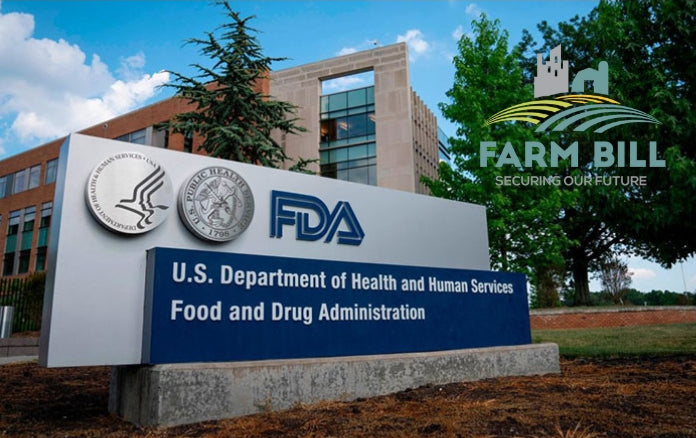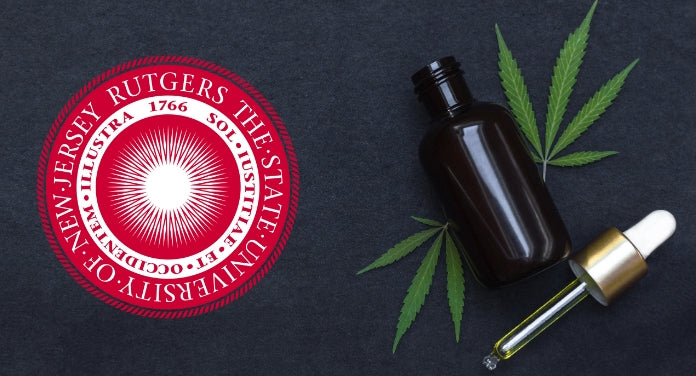With most states simply choosing to restrict or altogether ban intoxicating hemp derivatives (IHDs), Minnesota is actually choosing to regulate the highly valued industry instead of destroying it.

Much of the reporting regarding hemp and its controversial intoxicating derivatives, like delta-8, delta-9, and delta-10 THC, has centered predominantly on the problems caused by IHDs and the lack of effective regulation surrounding the enigmatic hemp variants. However, in Minnesota, health officials have taken a more practical and common-sense approach to the still-young and burgeoning industry.
This past summer, Minnesota became the 23rd state to legalize adult-use cannabis for adults over 21. And while that news came as a welcome jolt to the North Star state’s economy, retail dispensaries are not expected to begin selling cannabis products to consumers until early 2025. In the meantime, Minnesotans can legally cultivate their own cannabis plants and consume marijuana items right now.
However, those wishing to purchase cannabis products are left with precious few options, including buying items from Native American dispensaries in the state, which negotiated a deal with Minnesota lawmakers and the governor’s office to be able to sell marijuana on reservation lands as soon as the law went into effect on August 1, 2023.
Another option, of course, is to become a medicinal cannabis patient and participate in Minnesota’s medical marijuana program. But suppose an individual does not qualify for the program or is too far from one of the Native American tribes’ dispensaries. In that case, few alternatives are available to satisfy their needs.
For many who may need cannabis to treat chronic pain, insomnia, PTSD, anxiety, or a host of other ailments, items containing hemp-derived THC derivatives are the only solution available to them. With the passage of the 2018 Farm Bill, hemp and its downstream variants and uses were legalized for the first time in almost a century.
This groundbreaking legislation led to an explosion of products aimed at filling the gaps created by marijuana prohibition. Cannabis is still illegal at the federal level and in 26 states. IHDs and other hemp variants, most notably CBD, have become integral to the health and wellness industries in those states where marijuana is banned.
However, one of the issues plaguing the popular yet largely misunderstood sector is the lack of consistent and effective regulation ensuring the efficacy and safety of hemp-derived intoxicating products. Because of that inconsistency, some aggressive entrepreneurial hemp companies began manufacturing and selling high-potency THC products from hemp.
Unfortunately, at least one of those products has been linked to the death of a toddler in Virginia last year. In addition, there have been multiple cases of individuals, including teenagers, falling ill after ingesting items containing hemp-derived delta-8 THC. In response to the increase in high-potency products, several states began to pass legislation severely restricting and, in many cases, banning the politically toxic THC variant.
Minnesota decided to go a different way. Instead of taking the path to least resistance and abolishing the industry in the state, lawmakers, working with Governor Tim Walz’s office, doubled down on the plant and purposely included language in the cannabis legalization law to protect the state’s hemp industry.
Part of that protection consists of a well-funded and empowered hemp regulation system to ensure manufacturers and retailers are complying with state laws, particularly those designed to protect consumers from the dangers of high-potency THC products.
As part of that protection and regulatory program, the Minnesota Department of Health issued a bulletin last week warning consumers about certain retailers in the state selling unregulated and illegal cannabis products that exceed THC limits established by the state.
According to multiple media outlets, the warning resulted from the department’s first widespread inspection sweep of 167 retail businesses selling hemp-derived cannabinoid products between August and November.
During those surprise inspections, health officials found that more than one in three (39%) retail outlets were selling illegal high-potency product offerings. Under Minnesota law, edible hemp-derived items and beverages are not allowed to exceed 5 MG of THC per serving with no more than a total of 50 MG per package.
“Illegal, high-dose hemp-derived products may contain hundreds of milligrams of THC per serving, and with multiple servings in a package, this can add up to thousands of milligrams of THC — far above the legal limit. These products are produced by a variety of manufacturers and, if consumed, may lead to adverse health effects, such as becoming unresponsive, seizures or psychotic episodes,” the health department wrote in the bulletin.
"Illegal, high-dose hemp-derived products may contain hundreds of milligrams of THC per serving, and with multiple servings in a package, this can add up to thousands of milligrams of THC — far above the legal limit. These products are produced by a variety of manufacturers and, if consumed, may lead to adverse health effects, such as becoming unresponsive, seizures or psychotic episodes.”
- Minnesota Health Department Bulletin on Hemp-Derived THC Products
In addition to the overall warning, Garry Bowman, a spokesman for the Department of Health, also shared that more than 70% of the inspected retailers had “deficiencies of one kind or another,” such as incorrect labeling or product placement.
Unlike many other states struggling to deal with high-dose hemp-derived THC edibles, Minnesota chose to place its hemp industry under the watchful eye of the newly established Office of Cannabis Management.
The OCM, which falls under the overall authority of the state’s Health Department, began to closely monitor the sprawling sector this past summer when the Health Department gave it authority to inspect products and businesses, ensuring their compliance with testing requirements, dosage limits, labeling laws, and many other related issues.
Ironically, the unsettling findings from the surprise inspections did not surprise Chris Elvrum, the OCM’s assistant director.
"I think the marketplace, it just hadn't been regulated for a while, to any great degree," Elvrum said.
"I think the marketplace, it just hadn't been regulated for a while, to any great degree."
- Chris Elvrum, Assistant Dir. of the Minnesota Office of Cannabis Management
To combat the illicit operators, Elvrum said state health inspectors would primarily focus their enforcement attention on the types of companies that most commonly sell non-compliant products.
"So, smoke shops and some hemp shops and a few convenience stores. But a lot of them are smoke shops or tobacco shops that carry a variety and have these high-dose products. Right now, there's about 800 of those registered," Elvrum said.
According to the statute and Health Department officials, retailers found selling high-potency hemp-derived THC items may be leveled fines up to $10,000 per incident. Likewise, companies selling hemp-derived products must register with the state or face a $10,000 fine. Most health inspectors haven’t issued any fines to date. However, if businesses continue to sell illegal items after repeated warnings, they could be staring at substantial fines and other penalties, according to Elvrum.
"We are generally giving them the benefit of the doubt on the first visit. Certainly, repeated violations of the same nature are going to end up being considered for a penalty," Elvrum concluded.
"We are generally giving them the benefit of the doubt on the first visit. Certainly, repeated violations of the same nature are going to end up being considered for a penalty."
- Chris Elvrum, Assistant Dir. of the Minnesota Office of Cannabis Management
Many hemp advocates and stakeholders are closely monitoring the progress in Minnesota. They view that state’s approach as the ideal marriage of the hemp and cannabis industries. Instead of pitting the sibling plants against each other, lawmakers, regulators, and business owners are working together to provide a peaceful and mutually beneficial environment for both to operate. What a novel and reasonably-minded approach.






































